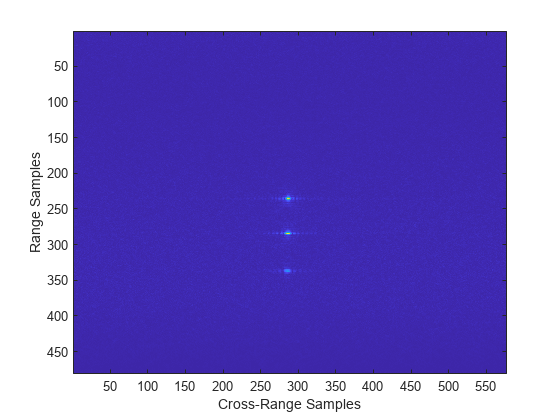rangeMigrationLFM
Syntax
Description
Examples
Input Arguments
Name-Value Arguments
Output Arguments
Extended Capabilities
Version History
Introduced in R2022a
See Also
phased.LinearFMWaveform | rangeMigrationFMCW | rangeMigrationSFM
Topics
- Stripmap Synthetic Aperture Radar (SAR) Image Formation (Radar Toolbox)
- Squinted Spotlight Synthetic Aperture Radar (SAR) Image Formation (Radar Toolbox)
- Synthetic Aperture Radar System Simulation and Image Formation (Radar Toolbox)
